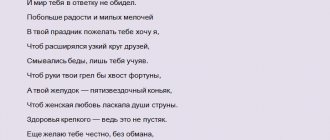Even in the last century, Russian cultural figures did not have a professional holiday that could properly represent the merits of these creative people. In 2007, by Decree of the President of the Russian Federation, a holiday was designated and Cultural Worker Day in 2019 is celebrated at the end of the first month of spring.
Photo citation: soc.cap.ru
Holiday traditions
On this day, the country's top officials congratulate cultural workers with official letters, present government awards, gratitude and valuable gifts. Performances by amateur artistic groups, literary evenings, holiday concerts, and recreational evenings are organized. Meetings of cultural workers are organized. There are exhibitions of museum exhibits, paintings, books, and crafts. Museums and libraries hold open days. The theaters organize charity events for children from orphanages and low-income families.
In Moscow, highly professional cultural figures are awarded the honorary title of “Honored Worker of Culture.”
Interesting Facts
- The following holidays are also dedicated to cultural and artistic figures in Russia: Day of the Russian Press, Day of Museums, Day of Libraries, Day of Theater, Day of Russian Cinema, Day of Monuments and Historical Places and others.
- The Library of Congress in Washington is the largest in the world. It stores 150 million copies of books.
- The most visited museum in the world is the Louvre in Paris. It receives about 8 million visitors annually.
- The oldest public theater in Europe is located in Croatia. It was built in 1612.
- India is the most culturally diverse country in the world. The regions of this country have significant racial, ethnic, economic, religious, and climatic differences.
- St. Petersburg is considered the cultural capital of Russia. This city has 2,000 libraries, 221 museums, 100 concert organizations, 80 cultural centers and clubs, 80 theaters, 62 cinemas, 45 art galleries.
History of the creation of the League of Culture
Nicholas Roerich Initiator and President of the League of Culture
Helena Roerich Initiator of the creation of the League of Culture
In 1931, N.K. Roerich and E.I. Roerich voiced the idea of creating the World League of Culture.
“The future League of Culture will show its word and establish the balance of the world, but, of course, now it is too early to talk about the League (although it already exists invisibly), because first the Banner of Culture itself must be approved. People must be imbued with the meaning of the values of the creativity of the Spirit and learn to honor the slightest manifestation of it.”
"N. K. Roerich founded the World League of Culture, a comprehensive cooperative union where all cultural, scientific and artistic societies and institutions of every nation would unite, as well as individuals working within cultural paths, without losing, of course, in this unification their individual goals and freedom of development"
.
The World League of Culture prepared the ground for the adoption of the international Treaty on the Protection of Artistic and Scientific Institutions and Historical Monuments (Roerich Pact), which in turn was intended to create a solid legal basis for the effective activities of the World League of Culture in the countries that signed this Treaty.
The original memorandum of the “World League of Culture”, signed by N.K. Roerich, E. I. Roerich, Y. N. Roerich, S. N. Roerich, Louis L. Horsch, Catherine S. Campbell, Nettie S. Horsch, Mrs. Helen Seidel, Esther J. Lichtman, J. Earl Schreck ( Mr. J. Earl Schrack), Z. G. Lichtman (hereinafter Fosdick), Bertha Kunz-Baker, M. M. Lichtman, Frances R. Grant. These same individuals became the first 14 members of the League's Board of Directors.
On December 23, 1931, a “Certificate of Registration” was issued in New York. On December 30, 1931, the registration was approved by New York State Chief Justice Ernest E. L. Hammer.
The 1st Meeting of the World League of Culture took place on June 16, 1932 in the Master Building in New York, on the premises of the Nicholas Roerich Museum. At it, a fragment of N.K. Roerich’s greeting to the Second International Conference of the Pact and Banner of Peace in Bruges was read out, in which the artist expressed confidence that the Belgian conference “will lay the foundation for a true League of Culture.”
League of Culture Badge
The sign of the Banner of Peace was chosen as the sign of the League of Culture - gold on purple, which had the same meaning as the Banner of Peace itself.
Branches of the League of Culture
The League of Culture was conceived as a broad international organization with its own League Council in each country and a common Central Council.
By the time the League was registered in December 1931, the American Branch of the World Cultural League had been formed, whose employees adopted a basic legal document consisting of 7 introductory articles of the Charter and 10 articles of the Constitution. Thus, the American Branch became the first officially operating structure within the League. At the time of the formation of the Branch, it included more than thirty people. T. Schneider was elected president of the department. N.K. Roerich was elected Supreme President of the League.
In 1932, a group of the League of Culture was formed in Paris under the chairmanship of P. Chabas.
No later than 1933, the Himalayan Branch of the League was created, which included the main founders - N.K. Roerich, E.I. Roerich, Yu.N. Roerich, S.N. Roerich, as well as V. A. Shibaev (as secretary).
In 1934, a branch of the League was organized in Latvia.
Toasts
“Our dear cultural workers! Congratulations on your professional day! I wish you to be creative, active and professional workers in your field! May your imagination be limitless, your work enjoyable, and the results positive! Health, happiness and good luck!
“We congratulate all cultural workers on this solemn day. We wish peace and prosperity to your profession. Let honor, glory and respect always be with you. Let creative peaks be conquered and creative potential realized. Happiness, love, good luck, success, care and understanding of loved ones!”
“On this wonderful day, please accept our best wishes, dear cultural workers of Russia. Let your dreams come true in the same sequence and accuracy as you want, let your enthusiasm and health never leave you. We wish that you always have time in your life for holidays abroad, going to the theater, cinema, reading your favorite books and magazines.”
GREETING CARD
(music sounds, a methodologist comes on stage.)
Methodist:
Dear colleagues! Our work is as follows: We give people a mood, Any leaf of the calendar brings inspiration to culture.
And on Women's Day, and on New Year's Day, And even on Navy Day, When all the people rejoice, Cultural workers have work.
Getting time off in culture, Believe us, is not very easy. We will spend one holiday - Another one is coming, taller.
And again we get involved in business, we draw, we dance, we have fun. And with tears in our eyes we strive to cheer others up.
But now our turn has come. We are hosts and guests here! And we call on all the people: Melancholy, throw away despondency!
Today is our holiday, friends! And let it be like a reward for us, Applause that never stops! The smile of those people who are next to us!
(Music sounds. The rest of the participants come onto the stage with balls in their hands, the strings from the balls are put on their hands, so that their hands are free. Everyone has hidden “clown noses,” preferably multi-colored ones.)
Director:
We have been working in culture for many years, And there is no job we love more. We give our hearts to our work, Our plans have no edge or end.
I.V.:
We will teach children to sing and dance, And we will not let adults get bored. We can speak beautifully, Give a good mood!
N.:
We will be able to celebrate any holiday and will help everyone find the talent in themselves. Our heart always hurts for everyone, Let no one in the hall be sad today.
Director:
There is no edge or end to our plans. We give our hearts to our work, We have been working in culture for many years, And there is no work we love more.
(All participants sing a song based on the song “Harlequin”)
1.
Acquaintances and friends are jealous that every evening you have a holiday, that music, smiles and lights, both on weekdays and on weekends.
You won’t get wet and you won’t break your stomach, After all, it’s not to plow, but to entertain your work: Jumping in sacks and singing all year round, They also give you money, they say.
Chorus
Ah, cultural worker, cultural worker, Your success is charming. Cultural worker, cultural worker, For you, the reward is laughter.
2.
And let the dank rains fall, The burden of the usual worries strains, But if you smile at people, Both despondency and sadness will disappear.
And no one cares at all whether you are healthy or how much rest you have had. No one should know your problems. You have chosen this fate for yourself.
Chorus
3.
Once upon a time you were called a mass worker, Now you have grown to become an animator. You dream of becoming a “deserved” secret And you can’t grab the bright stars from the sky.
No one will ever guess, what is the price of your vigor (fermata).
(everyone turns away and puts on “clown noses”, except for the methodologist.)
M.: (speaking to music)
You are the most needed person in the world, Because people have so little joy.
(everyone turns around and continues singing)
Chorus
Ah, cultural worker, cultural worker, Your success is charming. Cultural worker, cultural worker, For you, the reward is laughter.
Ah, cultural worker, cultural worker, sing along with us. Cultural worker, cultural worker, Never lose heart!
(When they lose, everyone goes down to the hall. They give balls to the audience)
Icons in original size. Photo - the head of the district department of culture (just change it to yours), print it on photo paper and cut it out, strengthen it with cardboard. We glue Velcro to the back, and attach the second half of the Velcro to our clothes with a pin.
Present
Bouquet of flowers. A bouquet of flowers will serve as a discreet and formal holiday gift. A lover of indoor flowers can be presented with a flowering plant in a pot.
Book. A book about the culture and art of Russia in a gift edition will serve as a good option for a thematic gift.
Tickets. Tickets to a cinema, a concert, a visit to an art gallery, museum or planetarium will serve as an original gift that will diversify your leisure time.
A funny reward. Anyone with a good sense of humor and a fan of practical jokes can be presented with a comic medal, cup, certificate, or Oscar statuette with a personal engraving and the signature: “The best cultural figure.”
Competitions
Theatrical production Guests of the holiday are invited to feel like theater actors. The presenter prepares in advance pieces from famous works of Russian classical literature. The first participant in the competition takes out a card at random and, using acting, tries to show the audience an excerpt of the work. The first person to pronounce the name of the author and the title of the book will win the competition.
Folk dances In the hall, dance melodies of different nations are played in turn: Lezginka, salsa, rumba, Kalinka, hopak, polka, sirtaki and so on. Contestants must demonstrate appropriate dances. The audience determines the winner by applause.
Festive round dance Participants of the holiday are divided into teams. Each team is given a card with a written location: psychiatric clinic, museum, army, bank. Teams must demonstrate what kind of round dance they could dance in the place they came across. The most artistic team wins.
Congratulations in verse and prose to cultural workers
A solemn congratulation on Cultural Worker’s Day might sound like this:
— Cultural worker. There is so much implied in these words, because people’s work is sometimes not noticeable at all, but we all enjoy the results of this titanic work, sometimes exhausting and many days. How much patience is needed to find and develop talent, to give a path to life for young professionals and to provide support to those who want to achieve more. So let your work always be appreciated, and the reward finds the best. Opening up the horizons of the world to us, you often forget about yourself, but remember only one thing - we value your contribution, respect your work and treat your work with great respect.
Photo citation: userapi.com
It’s a good idea to supplement an official congratulation in prose with poetry:
We dedicate this verse to all those whose work is sometimes invisible, In libraries, workshops, In theaters, clubs and museums. Labor and zeal are invaluable - to create culture, from generation to generation, to accumulate, store, pass on. In houses of culture, rural clubs, people dance and sing, and Happy Cultural Worker's Day, all the people congratulate you!
The evening will then conclude with a concert or program of performances from leading figures. After the official part, it’s time for informal parties, skits and communication.
Scenario of the cultural worker's day event
We offer a scenario for Cultural Worker's Day, which is organized by a small group. The original approach and extraordinary story will attract the attention of the heroes of the occasion. The following scene can be used as a basis:
- there are rumors among people about the emergence of a new medicine that heals not only the body, but also the soul;
- everyone wants to know what it is;
- the team leader receives a “letter” with the encrypted name of the “drug”;
- to solve the mystery, it is proposed to perform a number of actions, this could be dancing, painting, song, sculpture, poetry, etc.;
- After completing all the tasks for which participants from the audience are invited, everyone understands that these tasks were the “medicine”.
To perform the skit you need 4 people - these are the performers of the leadership roles of the House of Culture and they are also the presenters. This can be a solemn event scenario with the inclusion of an awards stage or fun entertainment that will appeal to all spectators.
During informal communication, the action is complemented by a competition program. For example, at the time of drawing a picture, several participants are invited. They are given cards with proverbs, sayings, a description/name of a literary work or an object of fine art - people are tasked with drawing what is encrypted on the card, and the audience is tasked with guessing the work of the “artist”.
International Theater Day: congratulations in verse and prose, script for the gala event
Cool holiday invitations
If you are going to make an invitation to a skit party, let it be a beautiful and funny, and most importantly, original design. Here are a few images that are easy to prepare with your own hands:
Quoting photo: druzhba43.ru
Photo citation: userapi.com
Quoting photo: musicollege.by
Nominations for Cultural Worker's Day
Nominations, like a skit, can be serious or comic. For example, these:
- For services to maintaining silence in the library. Awarded to the strictest manager of the establishment.
- For services to the development of fine arts. This is a solemn award, appreciated by the leaders of clubs and courses.
- For the development of search work in the museum of local history. Again, a comic nomination and award is given to a guide who knows his museum well.
There are also nominations that pay tribute to people who organize amateur creativity clubs and aesthetic education courses, expanding the “linguistic” space and drawing the funniest cartoons.
About the profession
The culture of Russia has been formed over many centuries. It influences the self-awareness of a person and entire generations, and plays a major role in the education of children and youth. Culture combines many areas: cinematography, theater, music, book publishing, sports, printing, local history, tourism, the media and other areas of art and everyday life. Cultural workers are people who have an inclination towards creative professions. The path to the profession begins with secondary or higher education. Cultural workers have a professional union - the Russian Trade Union of Cultural Workers.









